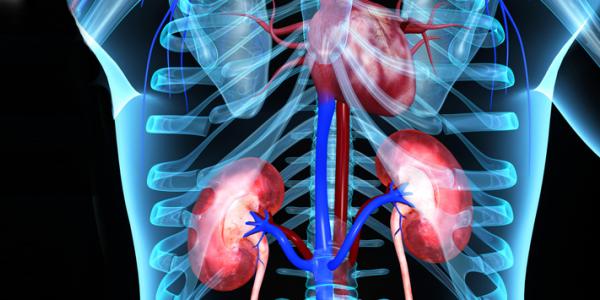


Most people never give much thought to their kidneys, but they are vital organs that are critical to our health.
Our two fist-sized kidneys — located on either side of the spine below the rib cage — filter about 200 quarts of fluid every 24 hours, performing functions that keep the body and its chemicals in balance. A major function of the kidneys is to remove waste products and excess fluid from the body in the form of urine. According to the National Kidney Foundation, the kidneys also:
The process by which the kidneys do all of this is complex. The filtration occurs when blood enters the kidneys through an artery from the heart and is then cleaned by tiny blood filters. Each kidney has about one million nephrons, and nephrons consist of a filtering unit called a glomerulus, which is attached to a tubule. Waste material goes to the bladder as urine, and the clean blood returns to the bloodstream. Kidneys are so good at their job that it’s possible to lead a long, healthy life with just one kidney instead of two. However kidneys need to be healthy to do their jobs well.
Some of the more common conditions that afflict the kidneys include:
Kidney disease is a risk for 1 in 3 American adults. The major risk factors are diabetes, high blood pressure, a family history of kidney failure and being age 60 or older. Since there are often no symptoms, kidney disease may not be diagnosed until it’s advanced. If left untreated, chronic kidney disease can develop. Kidney function will eventually deteriorate to a point where they no longer perform their job and individuals have to go on dialysis or get a kidney transplant. A simple urine test at an annual physical can detect kidney disease and allow for early treatment.
Keeping the kidneys healthy and preventing kidney disease means following the same tips that you would for prevention of any disease or cancer. Lose weight, follow a healthy diet, exercise, quit smoking, drink in moderation, and lower your salt intake. Learn more about the kidneys and how to keep them healthy from the National Kidney Foundation.
This article first appeared in the March 2018 edition of the HealthPerks newsletter.

Identify your risk factors and what to do if you are at risk.